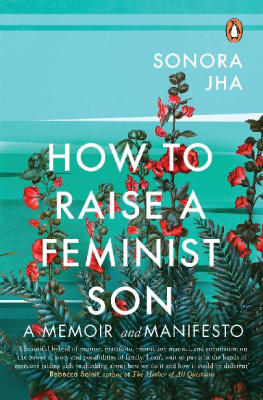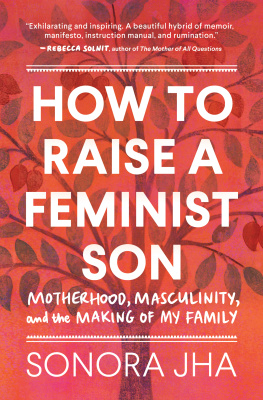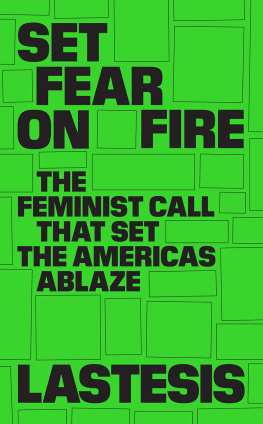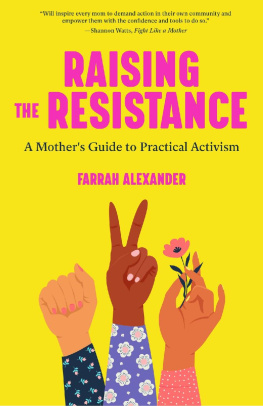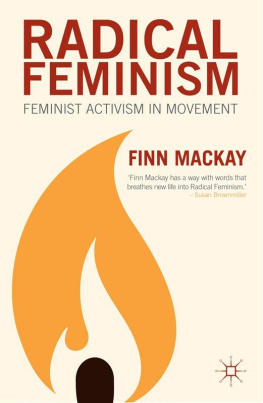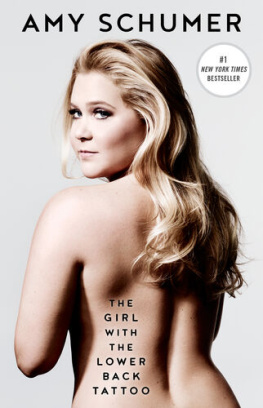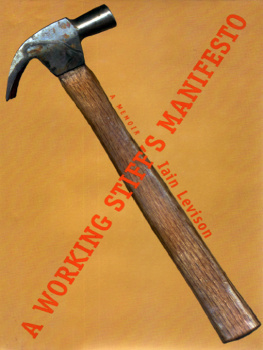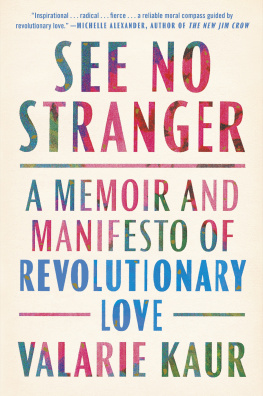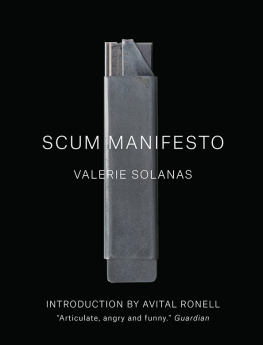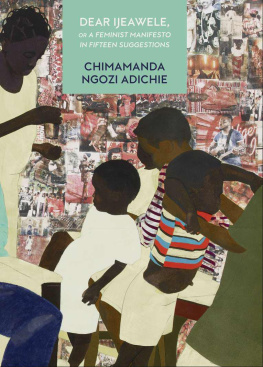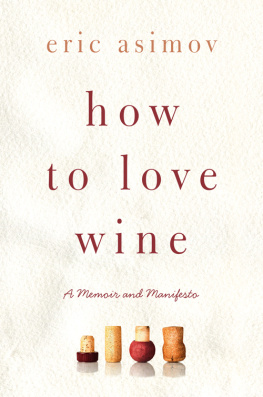SONORA JHA
HOW TO RAISE A FEMINIST SON
A Memoir and Manifesto
CONTENTS
PENGUIN BOOKS
HOW TO RAISE A FEMINIST SON
Sonora Jha, PhD, is an essayist, novelist, researcher, and professor of journalism at Seattle University. She is the author of the novel Foreign (Random House India, 2013) and co-editor of New Feminisms in South Asia: Disrupting the Discourse through Social Media, Film, and Literature (Routledge USA, 2017). Her op-eds and essays have appeared in the New York Times , the Seattle Times , the Establishment , DAME, and in several anthologies. She grew up in Mumbai and has been chief of the metropolitan bureau for the Times of India , Bangalore, and contributing editor for East magazine in Singapore. She teaches fiction and essay writing at Hugo House, the Hedgebrook Writers Retreat, and the Seattle Public Library. She is an alumna and board member of the Hedgebrook Writers Retreat, and has served on the jury for awards for Artist Trust, Hedgebrook, and Hugo House.
Praise for the Book
In How to Raise a Feminist Son , Jha weaves her own fascinating, sometimes heartbreaking, and always beautiful story of raising her own feminist son with careful research, insightful interviews, and helpful advice. There were countless times in reading this book where I found myself re-evaluating things I had told my own sons and setting new goals for things I would teach them in the future. True love sees you for who you are, and true love holds you to account when you fall short of who you can be, because true love knows what you are capable of. This book is a true love letter, not only to Jhas own son but also to all of our sons and to the parentsespecially motherswho raise themIjeoma Oluo, author of So You Want to Talk About Race and Mediocre
You cant punish your way to a more feminist world, Ive long believed; you have to create, encourage, invent that world, especially in how you raise kids, but thats only one reason Sonora Jhas book is exhilarating and inspiring. Its a beautiful hybrid of memoir, manifesto, instruction manual, and rumination on the power of story and possibilities of family. I cant wait to put it in the hands of everyone raising kids or thinking about how we do it and how it could be differentRebecca Solnit, author of The Mother of All Questions
Essential reading for any parent, loved one, or teacher seeking to raise feminist boys in these times. A strong case for how teaching our boys to show vulnerability, empathy, and remorse can be the path to freedom. Sonora Jha asks, Can boys be feminists? The answer is a resounding YESV (formerly Eve Ensler), author of The Vagina Monologues and The Apology
Combining the insight of memoir with sound advice, How to Raise a Feminist Son is a glorious map to a better futureMira Jacob, author of Good Talk
Sonora Jha takes on the hardest questions and the most-fraught conversations with nuance and grace. Here, when addressing the deepest anxieties of parents raising boys committed to a fair and just society, her insights are invaluableSoraya Chemaly, author of Rage Becomes Her
We need to grow better men. In this fierce, elegant, necessary book, Sonora Jha tells us how she did just that. Weaving together the personal and the political, Jha fearlessly examines our current moment and how it affects the young men among us. How to Raise a Feminist Son scorches, illuminates, and above all challenges us to do betterClaire Dederer, author of Love and Trouble and Poser
Authors Note
In using son in the title and sons/boys in the theme of the book, I am choosing to focus on the urgent task of raising cisgender boys to be feminists, but I also address other intersectional identities within these chapters. This book is for anyone with an interest in feminism, but its especially for those who have influence on the raising of boys. Most of us do.
I have changed the names of most people I know except for the experts I have quoted, public figures, and some friends. I have collapsed some time spans and have focused on those people and those parts of my story that I believed were central to the theme. I have relied on my memory to tell my truths of moments in my life and in the life of my son. Others may recall some of the shared moments differently.
Prologue
HOW I RAISED A FEMINIST IN THE DARK
In Jordan Peeles Us , there is a scene quite early in the film when a boy says, Theres a family in our driveway. If you have seen the film, you know this is the pivotal moment that sets the mayhem in motion. We see a man, woman, and two children holding hands, standing silhouetted in the driveway of a vacation home, looking in on the people inside.
All hell is about to break loose in the film, but I am distracted. How did the boy know to call that group of people in the driveway a family? Is it because thats all he knows and sees reflected, being part of a wholesome American family himself? Is it because theres that sticker on his family car of a stick-figure man and woman and boy and girl holding handsyou know the one Im talking aboutdepicting a family? If my son and I showed up in someones driveway to stand, holding hands quietly, silent and backlit for some reason, would we be as eerie? Would the boy looking out at us call us a family?
I know the answer to that question and it is no. I dont even call our single-mother-and-only-child unit a family. I should, but I dont. As I lean back into watching the film, shaking off my spoiler thoughts, suspending disbelief so I can hand myself over to the deliciously escapist terror reserved for wholesome families, I sneak a look at my adult son in the seat next to me and then back at the screen as a family attempts to kill a family, and I wonder if Jordan Peele doesnt care for traditional families either. I am oddly comforted by this thought.
This is why we go to the movies, my son and I. These beautiful things that glow in the dark, these reels of thought and story sent to us from imagination factories, connect Gibran and me in our reimagined life together. Here, we are far from my violent family in India, from the poor role models of masculinity there to which I would have had to hand my boy over had we not found our temple in these seats at the movies.
You could argue, of course, that Hollywood, Bollywood, and any other film industry in the world are hardly temples of feminist thought and representation. In fact, they are mostly quite the opposite. And yet, although I didnt know it for years, I was building a tender-hearted, sharp-witted feminist boy at the movies.
The task of raising a boy into a man with a feminist consciousness sometimes involves stealing him away from the quotidian misogyny and its twenty-four-hour infractions, and leading him into the fantasies conjured up by twenty-four frames per second. Feminism, like film, requires a suspension of disbelief. It requires that we trust that a little girl can use her wit and courage to rescue her parents when her father makes a wrong turn into a ghostly world in Hayao Miyazakis Spirited Away . It suggests that my son trust that Nancy Chan, who sat next to him in his third-grade classroom, is smarter than him and will one day be President of the United States.






